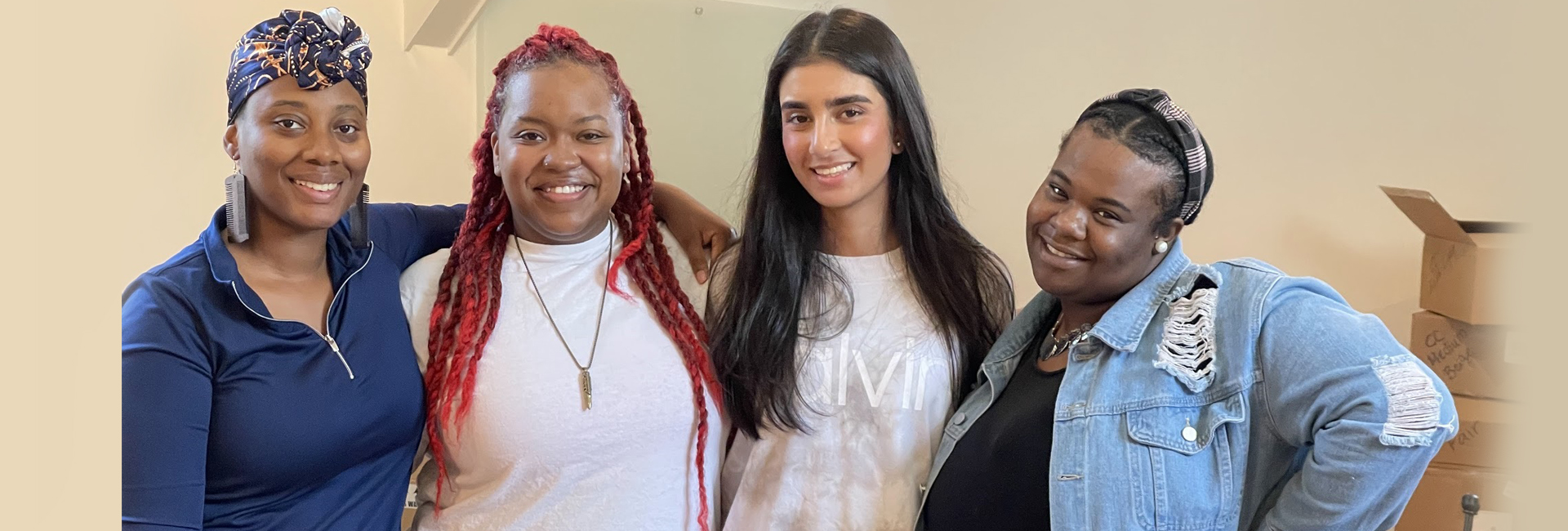(November 4, 2022) The last wish from their dying grandmother, who was then battling pancreatic cancer, played a catalyst for Charlotte residents Sherya Mantha and Sahana Mantha in starting Foundation for Girls (FFG) in 2014 – a nonprofit to help underprivileged girls and women. The journey into social service began early for the Mantha sisters who were raised by their mom to help those in need. “Our mom has always encouraged us to lead a purposeful life and carve our paths. She has helped us by being our brainstorming partner and always challenging us to overcome obstacles and continue forward,” Shreya tells Global Indian.
While FFG has impacted over 2500 homeless mothers and their girls through coaching, workshops, and care packs, it began with Shreya tutoring sex trafficking survivors and school dropouts when she was in Class 8. “Before FFG was established, every Friday evening, I was tutoring girls between the age of 13 and 15, in Math and English, along with my father. At the same time, Sahana and mom would ensure we had enough food for the girls, as it is hard to concentrate on an empty stomach. We would leave them with enough till we met them the following week. The most important thing our mom taught us was ‘treat them as just regular girls your age, and barriers will break down,’ and that has how it has always been. So, our foundational principles of inclusivity and equity have much to do with how we live and lead,” adds the 21-year-old.
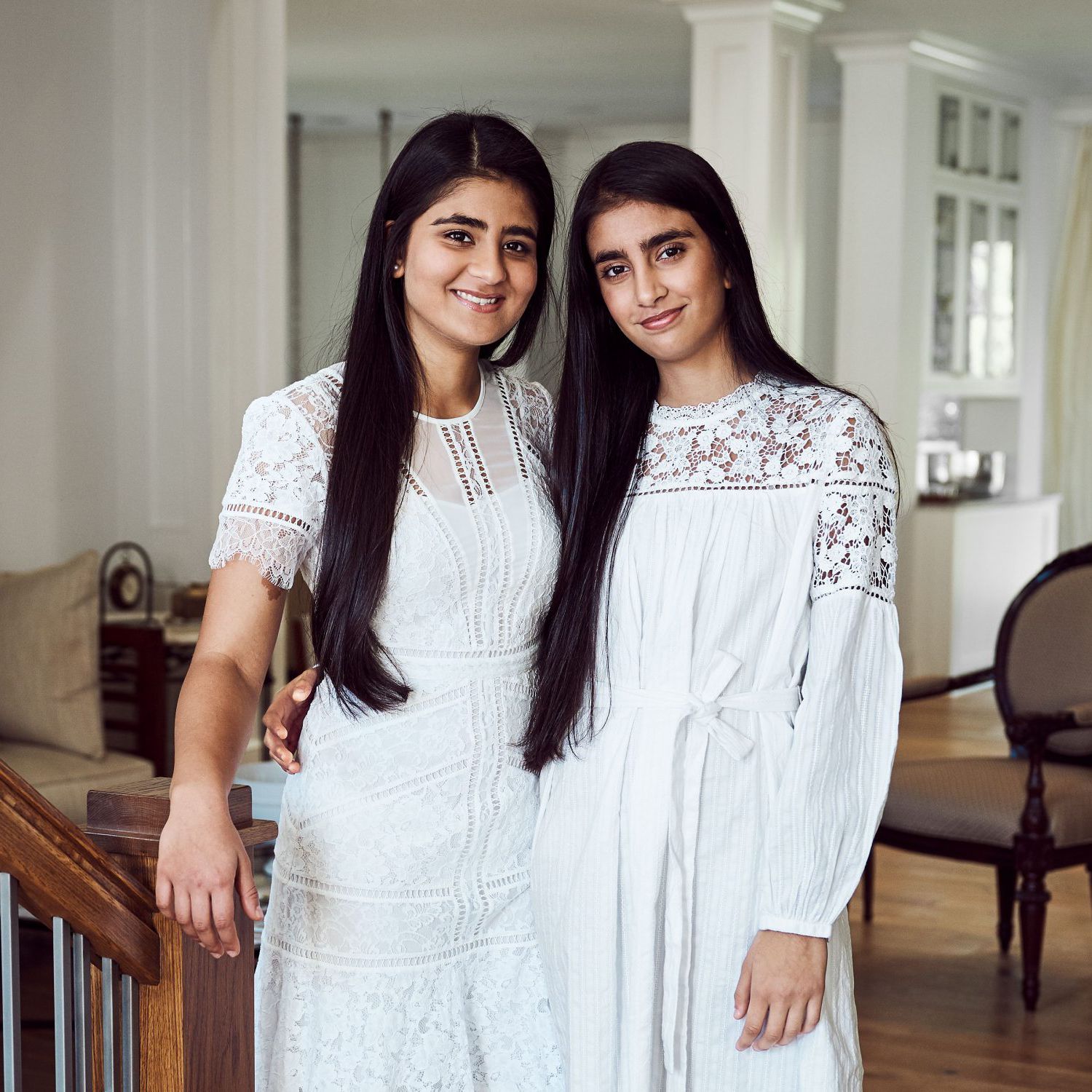
Shreya and Sahana Mantha co-founded Foundation for Girls
Being a teenager herself then, she learnt it takes time to gain the trust of girls who come from “traumatic backgrounds.” However, Shreya says that “consistency, care, and communication play an important role” as the transformation journey isn’t easy and takes a long time. “FFG invests in girls for the long term. This also means the allocation of a coaching team and resources to match the needs of every girl and child. Many of the participants of FFG were 13-14 years old when they joined, and now they are 18-19 years. Today more than 95 percent of the girls join FFG by referral,” avers Shreya.
The calling
The Mantha sisters didn’t have to look far for motivation as they found their role model in their mom. “She raised both my sister and me with warmth but also strength and determination. And that’s something we carry with us daily. She’s all about positivity and about doing good things for others and doing it every day. It’s not just a once-a-month thing or a once-in-a-while thing. When you do good for people, not only do you feel good but it’s impacting them in a good way too,” says Shreya, who is a senior at Stanford University, adding, “More than anything, she raised us with really strong values.”
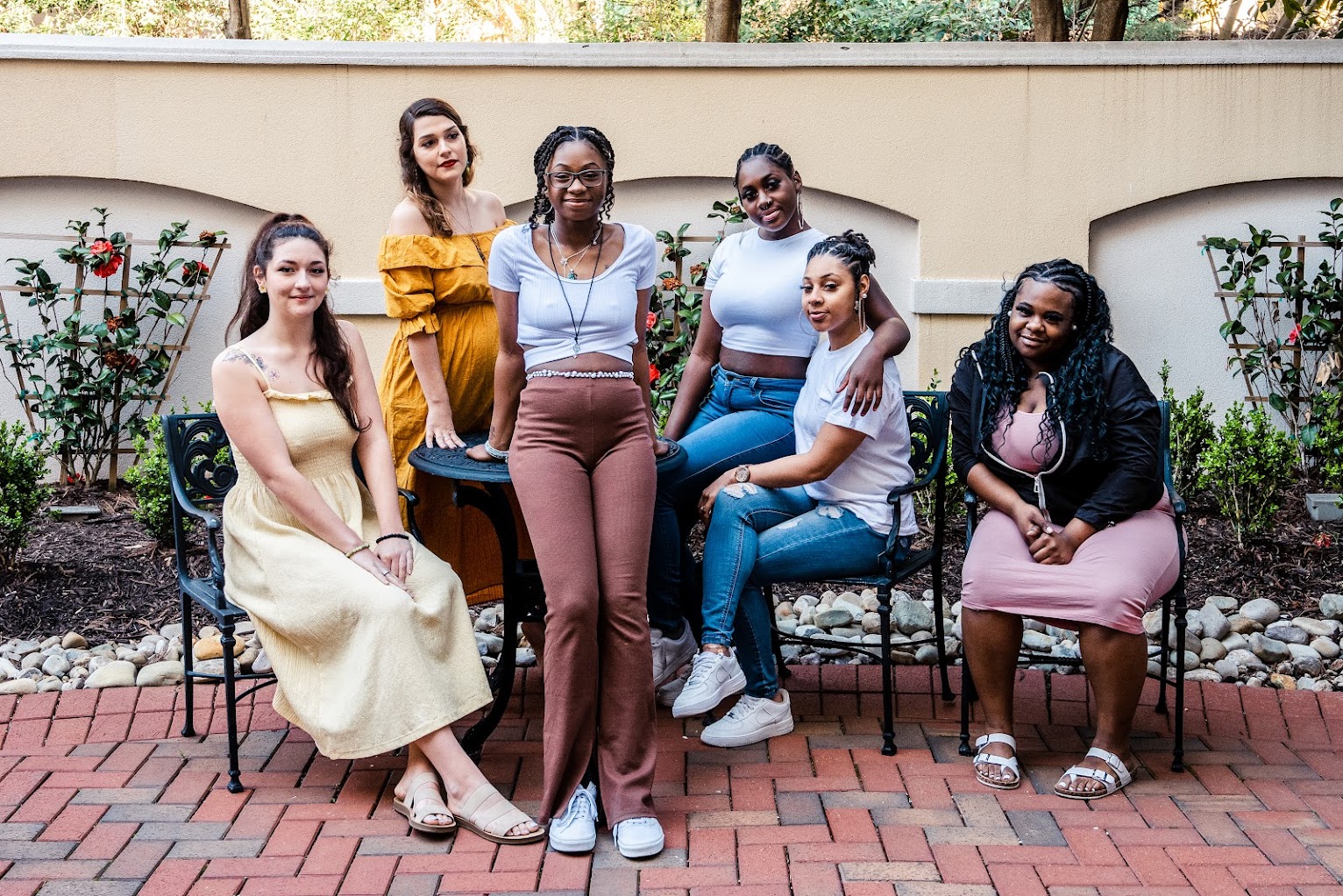

A group photo of FFG moms
At the age of 13, Shreya began tutoring sex trafficking survivors and school dropouts in her hometown of Charlotte. The nudge to help the marginalised women and children came from the realisation that despite being one of the US’s fastest-growing cities, Charlotte is at the bottom in terms of economic mobility. That’s when she and her sister Sahana started exploring their community to understand the problem at the grassroots level, realising the challenges faced by the at-risk girls. “They are insufficiently prepared economically, educationally, and emotionally to support themselves. They have low incomes and experience economic hardships, particularly as many are disproportionately disadvantaged racial and ethnic minorities,” adds Shreya, who understood the importance of meeting the women’s needs to improve their lives as well as help them become contributing members of society.
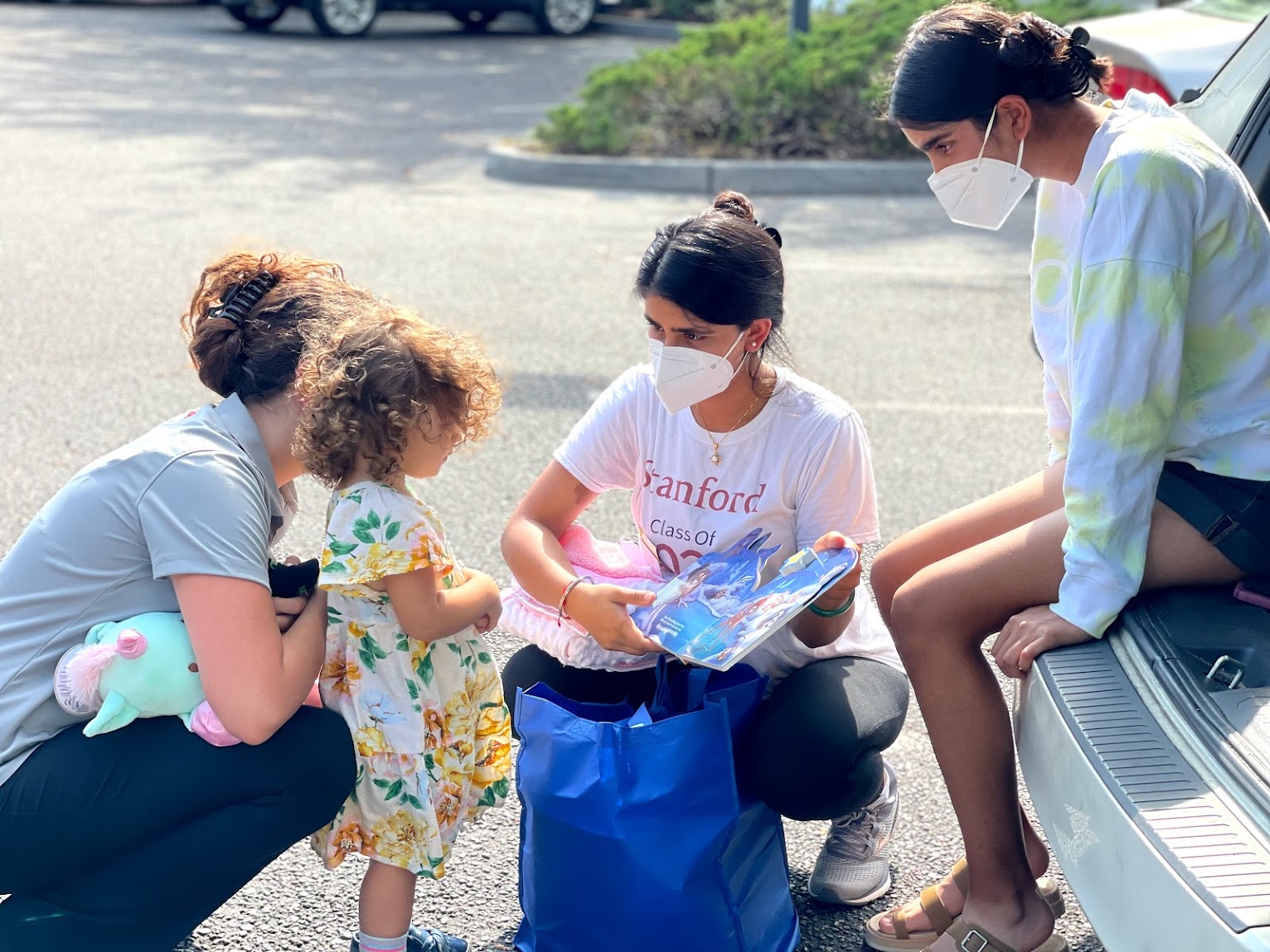

Shreya and Sahana Mantha with FFG mother and daughter
“Women who span the approximate ages of 15 to 26 are in a critical period of development, with long-lasting implications for their economic security, health, and well-being. Without deliberate action, however, this period of development is likely to magnify inequality, with lasting effects through adulthood. There needed to be intentional and thoughtful approaches to provide them with the resources, relationships and recommendations needed on their journey to independence,” explains the Diana Award recipient, who launched Foundation for Girls to play its part in “empowering homeless single mothers to become financially savvy, digitally capable, career confident, and socially connected for multi-generational change.”
Making an impact
Till now, the Mantha sisters have impacted over 2500 homeless single mothers and their children through Foundation for Girls, which now has nine chapters including California, Iowa, Washington, Georgia, North Carolina, South Carolina, Texas, Maryland, and DC, under the leadership of Sahana, who is a sophomore in high school at Providence Day School. She dipped her toes into the world of social service eight years ago when she “sourced and provided fresh food for girls who were being tutored” and later moved to teaching digital skills to FFG participants.
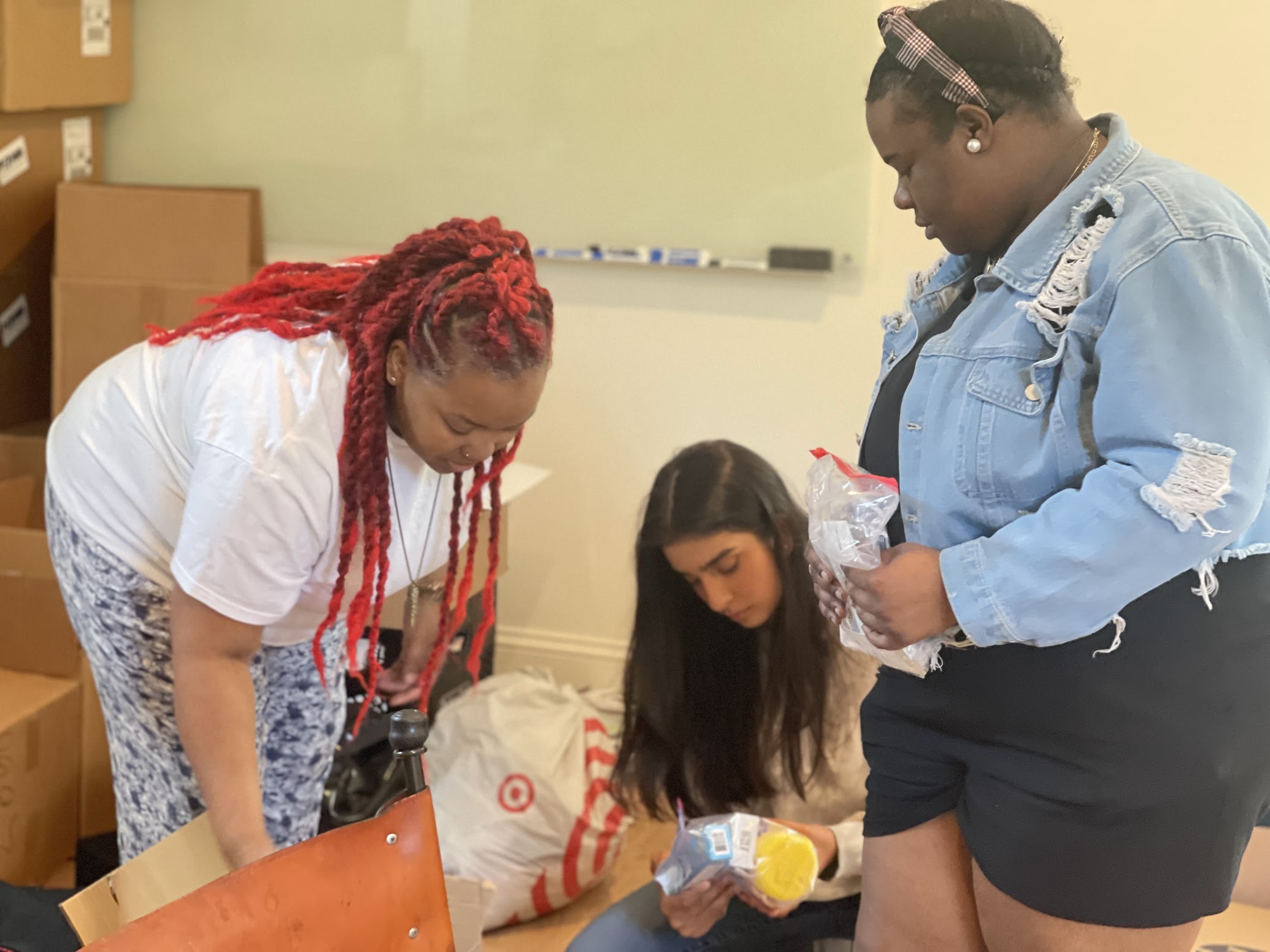

Sahana Mantha with FFG moms
Currently, the 16-year-old works on the strategy aspect to “meet the ever-expanding needs of the FFG community to maximise the multi-generational impact.” The implementation of FFG technological solutions during the pandemic, enabled girls from nine states to work with coaches, regardless of their geographic location. Moreover, the teenager leads the Circle of Care program wherein she looks into the sourcing and assembly of care packages that are delivered to the moms every week.
With a team of over 75 volunteer coaches and 150 plus volunteers, FFG coaches build bridges and human connections through one-on-one coaching for transformative impact and multi-generational change. With a mission to empower homeless single and support their children, FFG “invests in women to be financially savvy, career confident, digitally capable, and socially connected.”
Every challenge is an opportunity
Shreya and Sahana, who have come a long way, call FFG a learning curve. Funding to setting partnerships in new states during expansion were some of the hurdles that they had to go through together. Since the girls were still in school, getting funds for FFG was a challenge. “Our parents gave us our seed money to get everything started. Later, we learned how to write grants and get funding,” reminisces Shreya, adding that FFG currently raises money from corporate sponsorships, grants, community foundations, and family-based foundations.
The Mantha sisters call every challenge an equal opportunity to learn. The hardships made them better at every step of the journey. “Persistence and the power of collaboration are key. Having the right team and values-aligned individuals have made the impact possible,” add the changemakers for whom FFG will always be their way of giving back to the society. “We hope to continue to drive long-term systemic, sustainable change for homeless single mothers and their children,” chimes in Sahana.
Though they share the same goal in terms of FFG, the Mantha sisters enjoy diverse interests. While Sahana, a competitive golfer, loves exploring new cuisines, her older sister loves “listening to podcasts, watching movies, and hiking.”
The sisters, who are making an impact in society with FFG, say understanding the problems in the community and identifying your role in problem-solving is the first step towards making an impact. “Begin small and take small steps every day,” says Shreya while Sahana signs off adding, “Identify your partners and build your team along the way.”

